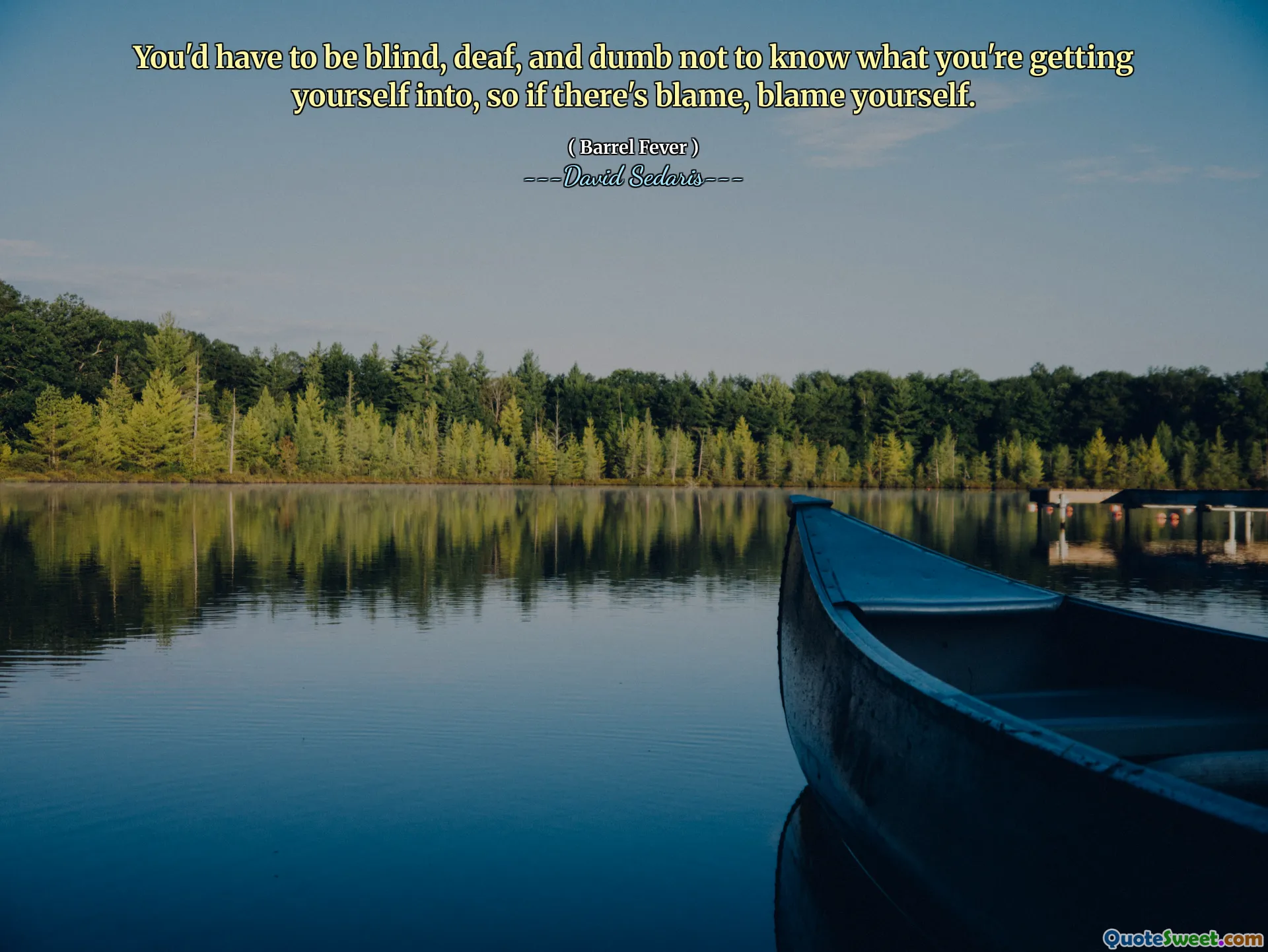
You'd have to be blind, deaf, and dumb not to know what you're getting yourself into, so if there's blame, blame yourself.
This quote delivers a sharp and somewhat sarcastic admonition about personal responsibility and awareness. It suggests that one must be willfully ignorant—blind, deaf, and dumb, metaphorically speaking—to not understand the consequences of their own choices. The phrase emphasizes proactive accountability rather than blaming external circumstances or others for situations that result from one’s decisions. It underscores the importance of being fully cognizant and deliberate in the paths we choose to take in life. When we intentionally engage in any course of action, we must accept ownership of the outcomes, whether positive or negative. The blunt tone injects humor but also drives home a serious philosophical truth about human agency and the consequences of negligence or ignorance. In essence, the statement champions self-awareness and maturity by discouraging victimhood or blame-shifting. It resonates in everyday contexts, reminding us to do our due diligence before committing to significant choices, whether in relationships, career pursuits, or personal growth endeavors. The notion that ignorance is avoidable reinforces our ability to shape our destinies through careful deliberation and active participation. By holding oneself accountable, one gains not just clarity but also empowerment to learn from mistakes and improve. Though it may come off as harsh, the quote ultimately highlights that self-blame, when justified, is a catalyst for personal responsibility and transformation.






